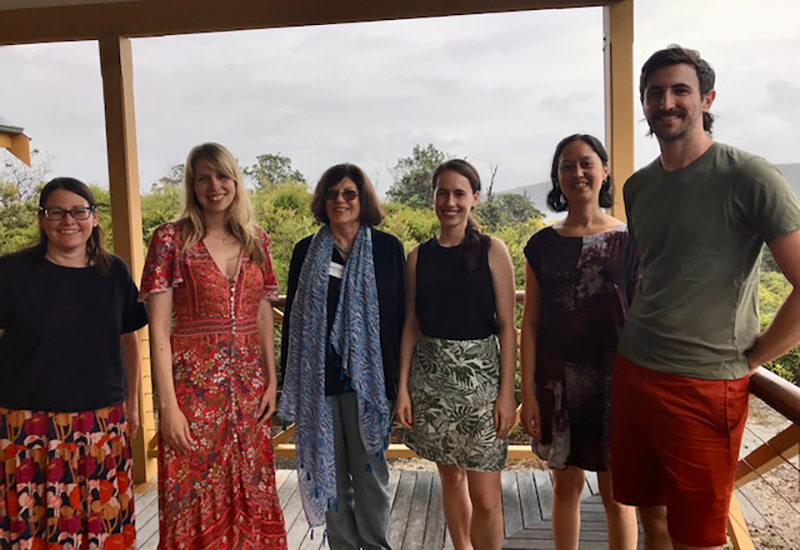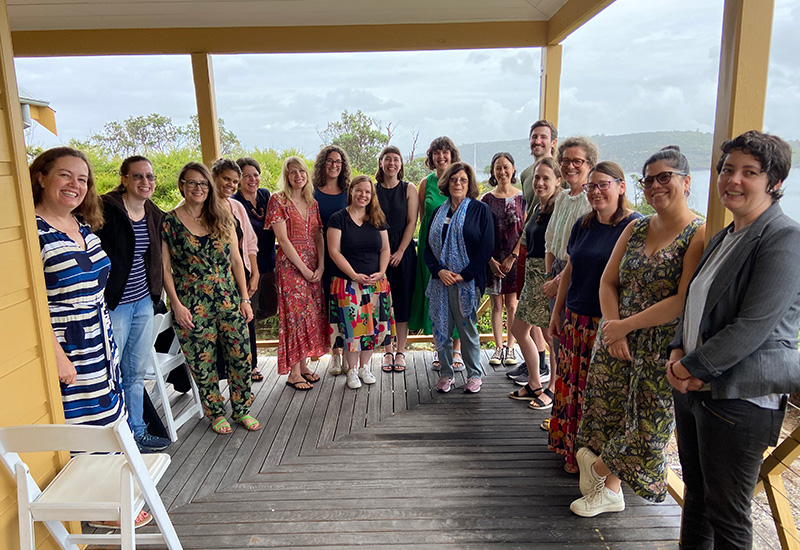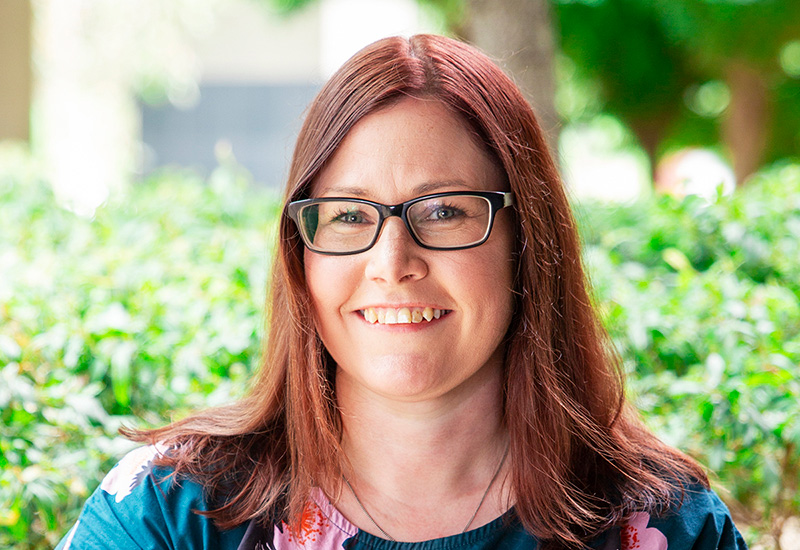By Vanessa Lanaway
The Residential Editorial Program is an immersive, intensive editorial experience for mid-career book editors. I was fortunate enough to attend the 2022 program at Q Station in Manly, Sydney.
For four days, attendees spent the mornings working in small groups, workshopping the structural edit on an unpublished adult literary manuscript, with extensive notes prepared prior to attending. Those discussions were guided by our outstanding mentors, Linda Funnell, Jo Butler and Grace Lucas-Pennington. Linda mentored my group brilliantly, knowing exactly when to prompt us and when to let our discussions run, going wherever they took us. The opportunity to workshop an edit so freely, without the constraints of a brief, schedule or budget, was an unusual luxury that really helped us explore the differences between what we would do, and what we could do, given the commercial constraints inherent in our roles.
In the afternoons, we were treated to guest speakers who shared their rich knowledge and experience. These presenters were every bit as generous and learned as our mentors. Emma Rafferty shared her substantial knowledge on structural editing. Lisa Fuller spoke of the importance of making phone contact with authors prior to starting on an edit, in order to build trust and a productive working relationship from the outset. That point about relationship building was reinforced during an enthralling and hilarious session with author Wai Chim and her editor, Radhiah Chowdhury, whose discussion embodied the kind of rapport all editors dream of enjoying with their authors!
Lisa Fuller, Rachel Bin Salleh and Grace Lucas-Pennington were open and astute with their discussion on First Nations writing, editing and publishing, drawing attention to the cultural load on First Nations people, the pressure to educate, and offering vital insights into ways to contribute productively to a more diverse publishing industry.
Between and around those sessions, we continued the conversation over breakfast, lunch, dinner, before and between. It felt incredibly indulgent to have that time to talk about books and editing nonstop. It also felt like nothing short of a miracle that in February 2022, after years of lockdowns, REP actually went ahead. Having carefully trained myself not to look forward to things, I held my breath right up until the last second – I didn’t even book my airport parking until the day before!
The final presentation, which was a discussion with the editor of the manuscript we’d been workshopping all week, truly embodied the generosity and trust that forms the foundation of the REP. Addressing a group of 15 peers who have spent considerable time workshopping a manuscript you edited cannot be an easy task. This editor was extraordinarily open and candid, providing a fascinating insight into the editorial decisions that were made, and how they aligned with – and differed to – the discussions we’d had throughout the week.
REP was a truly rewarding experience. I’d been dreaming of attending for 10 years – since long before I was remotely qualified to even apply – and it exceeded all my expectations. The opportunity to spend four days honing my craft and exchanging thoughts, ideas and war stories with experienced editors was an unparalleled professional development opportunity. I learned so much and met so many incredible people. While intimidatingly accomplished, the other attendees were all warm, brilliant and keen to swap insights. I should have known – after all, they’re book people.
I’m enormously grateful to IPEd for providing me with a freelance scholarship. Pursuing these kinds of professional development opportunities as a freelancer can be financially challenging. The benefit of a scholarship took a lot of pressure off and also showed fantastic support for, and recognition of, the contribution that freelance editors make to book publishing in Australia.
A huge thanks also goes to the APA for organising the REP and managing to pull it off in the face of enormous challenges. This is a huge undertaking at the best of times, let alone during a time of such uncertainty. That the program ran so smoothly, and was so valuable and successful, is a huge testament to the work that went into making it happen and to the generosity of all those involved.



